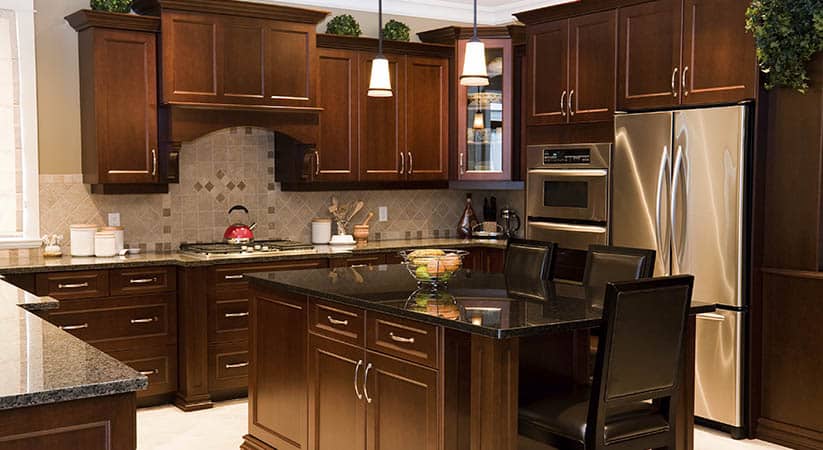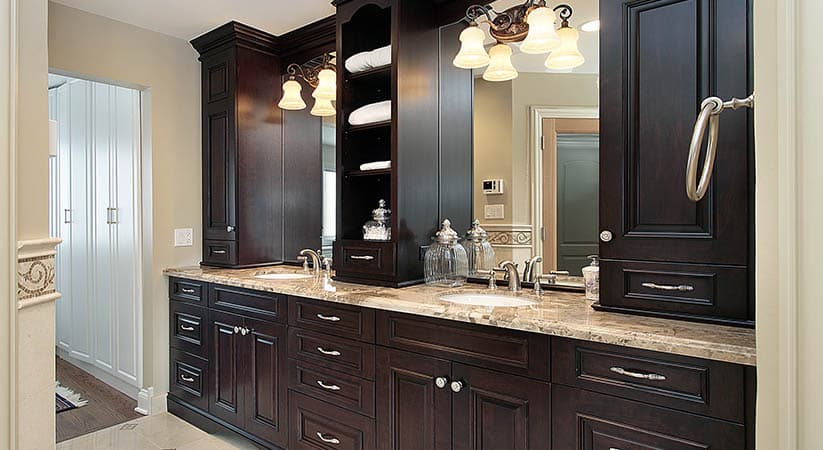Can’t decide which type of countertop replacement to choose for your kitchen? Should it be concrete or Quartz? These are the two most popular options. But which stone is the best? Read further to find out:
Appearance
Quartz has a 3D appearance. It looks like natural stone. It is made of 93 percent stone-like materials and 7 percent binders (cement or plastic-based).
Concrete is a combination of the cast from cement. It is polished to create a smooth surface. This makes it possible to create a countertop in any color and shape. Concrete is constructed from the mold. The process does not require cutting holes. It can be colored even after it has been cured. That’s why it’s available in a variety of color palettes. It can also embed colored glass and seashells for adding visual appeal. It’s very flexible when it comes to aesthetics.
The Installation Process
Both quartz and concrete are heavy materials. You will need professional assistance for installation. Special equipment is required to fabricate the stone and install it correctly.
Before the installation, the stone is shaped and finished to fit into its desired place. Concrete is cast separately and then installed. The installer will create a mold for the counter. Then, it is placed into the mold and left for the cure. After then, it is polished and installed.
Heat Resistance
Concrete has great heat resistant qualities even better than quartz. It’s recommended not to place a hot pot on the countertop directly (whether it’s made of concrete or quartz). This could damage the sealant that’s responsible for protecting it from spills and stains. The surface might developed cracks as well.
Maintenance
Concrete is a tough material. However, since it is porous, this results in two potential problems. It can get stained easily and turn into a birthplace for mold and bacteria. The worst part is you might be unaware of the problem. To prevent this, it’s recommended to seal the concrete every 1 to 3 years.
Quartz is a low maintenance material. Its surface is solid and non-porous. It is sealed during the fabrication. Hence, you will find it very easy to maintain. This also makes it more durable. It is harder and it doesn’t promote the growth of bacteria. However, you must be careful placing cooking pans directly on quartz. Excessive heat can damage it.
Price
Concrete is one of those countertops that fall in mid-range price. It’s more expensive than tiles and less expensive than marble. The cost of the concrete countertop is not really in the material rather in the skill and creativity of the artisan. Quartz is not cheap. Since it’s a long-lasting and elegant stone, it is more expensive.
Concrete vs Quartz Countertops – Features & Benefits
Concrete Countertops
Looks
You will find concrete in just about any style you want. It comes embedded with materials like glass fragments, stones, shells, and even fiber-optic lights to enhance its aesthetics. You can get them in a customized size depending on the configuration of your kitchen.
Hardness
Concrete is a heavy and durable material. However, it’s porous and hence you have to be extra careful about the cleanliness and maintenance. You must get regular sealing done for improving its durability.
Aesthetic Value
Concrete countertops are considered premium and they can improve the value of your property. New coloring and staining techniques are being introduced so you can find concrete in lots of variety.
Quartz Countertops
Looks
It looks like natural stone. Buyers prefer it because of its natural luster.
Hardness
It’s extremely hard and hence very durable. It is composed of solid minerals and limited binders. It is non-porous. This makes it easier to clean. It will last for years if you take care of the quartz countertops well.
Aesthetic Value
Quartz is available in a variety of colors – cream, white, gray, and black; you name it. It usually has a uniform color pattern throughout the surface. It’s easier to find a countertop in the color that matches the theme of your kitchen.
Summing Up
Both concrete and quartz kitchen countertops NC are great at their own respective places. Whichever stone you choose for your countertop depends on your aesthetic needs, the style of your kitchen and of course, your budget.



